Ellwood Family History & Genealogy
Ellwood Last Name History & Origin
AddSummary
A famous member of the Ellwood family is Ellsworth Earl Ellwood, an American architect. The history of the Ellwood family and the meaning and origin of the surname Ellwood have yet to be shared on this page.
History
We don't have any information on the history of the Ellwood name. Have information to share?
Name Origin
We don't have any information on the origins of the Ellwood name. Have information to share?
Spellings & Pronunciations
We don't have any alternate spellings or pronunciation information on the Ellwood name. Have information to share?
Nationality & Ethnicity
We don't have any information on the nationality / ethnicity of the Ellwood name. Have information to share?
Famous People named Ellwood
Famous members of teh Ellwood family:
Ellsworth Earl Ellwood, American Architect
Early Ellwoods
These are the earliest records we have of the Ellwood family.
Ellwood Family Photos
Discover Ellwood family photos shared by the community. These photos contain people and places related to the Ellwood last name.

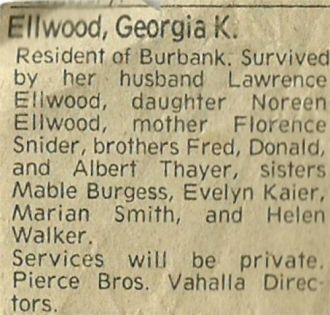
People in photo include: Georgia Katherine Thayer

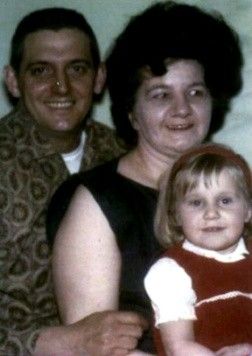
People in photo include: Larry Ellwood, Larry Elwood, Larry Elwood, and Noreen Ellwood
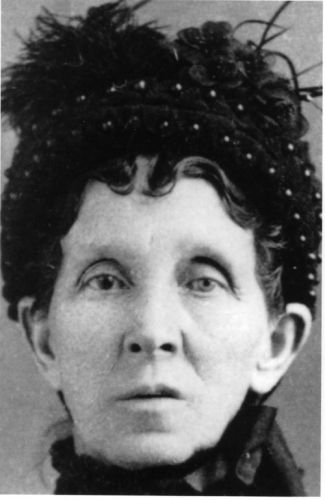
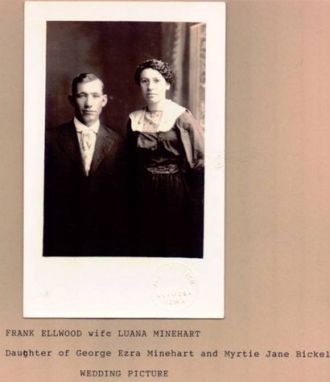
Married: September 21, 1917 Marion, Linn Co., Iowa to Luana Christena Minehart b. February 28, 1896 Linn Co., Iowa d. August 11, 1986 Senior Home, Monticello, Jones Co., Iowa. Buried: Forest Hill Cem., RR. Anamosa, Jones Co., Iowa
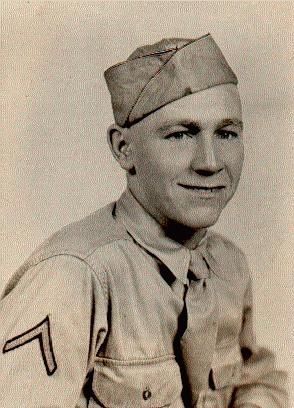
Ellwood Family Tree
Discover the most common names, oldest records and life expectancy of people with the last name Ellwood.
Updated Ellwood Biographies


Popular Ellwood Biographies





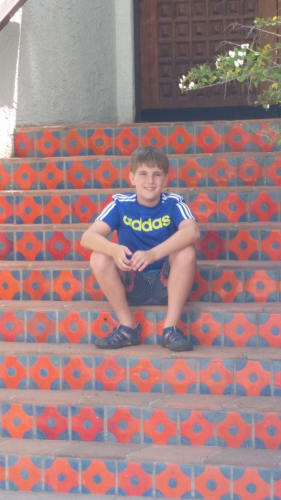
Ellwood Death Records & Life Expectancy
The average age of a Ellwood family member is 75.0 years old according to our database of 562 people with the last name Ellwood that have a birth and death date listed.
Life Expectancy
Oldest Ellwoods
These are the longest-lived members of the Ellwood family on AncientFaces.
Other Ellwood Records
Share memories about your Ellwood family
Leave comments and ask questions related to the Ellwood family.
Followers & Sources

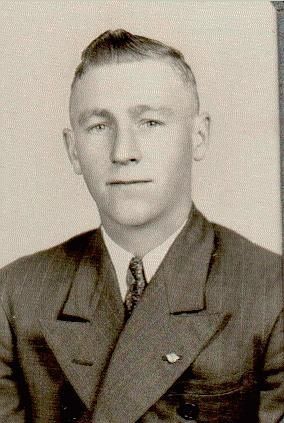
Written by her daughter, Louisa Morris White
Transcribed by Anjanette Stone Lofgren, July, 2005
Ann Ellwood Morris, daughter of Joseph and Dorothy Snudding Ellwood, was born in Empingham, Rutlandshire, England, on the 23rd of November, 1833. She was baptized into the LDS church on the 18th of November 1853, by Thomas A. Jeffery, and confirmed by Thomas Bland.
She went secretly to get baptized, and as there was no place where she could change, she was obliged to walk a long distance in her wet clothes, which froze stiff on her body, but she didn’t catch the least cold. Before her baptism, she had been troubled for some months with a large swelling on her neck, for which she had been under the doctor’s care. After being baptized she threw away the medicine she had been using, with but little effect, and declared she was going to depend on the Lord to heal her. Through administration of the Elders, her faith was rewarded, for in a short time the lump entirely disappeared without leaving any scar.
It seems that even in those early days, the children were instructed somewhat in Domestic Art in the schools, as while attending school my mother learned to become a very expert knitter. I have never seen anyone who could knit so fast as she; she would make the needles fairly fly. She has told me that she and one of the young boys were the fastest knitters in the school, and that they would often run races and which ever got through first would share in the daintiest part of the other’s lunch.
In July 1854, lacking four months of being twenty-one, she was married to my father, Charles Morris of Dean, Northamptonshire. He was twenty-one years of age, had been baptized when he was fifteen, and at the time my mother and he became acquainted, he was a traveling Elder in the district in which my mother lived. After her marriage, my mother moved to Northamptonshire. On April 28, 1855, their first child was born, whom they named Joseph Hyrum, for the Prophet Joseph and his brother.
Before joining the church nothing could induce my mother to take a journey by water, but she said after she was baptized all this fear of the sea left her, and a great desire to immigrate to America took its place. On the 28th of April, 1856, the day their little son was a year old, they set sail on the ship “Thornton”, bound for “the land choice above all others.” In company with them were my father’s two younger brothers, and my mother’s father and mother and her two brothers and two sisters, who were all members of the church. After a voyage of four weeks they landed, and made their home in Cincinnati, Ohio. Here father found employment at his trade as a tanner and furrier. A year or two later they moved to Wisconsin, where they joined my mother’s family, who were located on a farm 18 miles west of Madison, the capital city. They stayed here until the spring of 1862, when they decided to continue their journey to Utah.
While living in Ohio and Wisconsin, four baby girls had been born to them, two of whom had died, one in Ohio and one is Wisconsin, so their family now consisted of Joseph Hyrum, aged seven, Louisa, aged four, and Sarah Ann, aged ten months.
In the latter part of June, 1862, they took the train at Madison, Wisconsin, for Florence, Nebraska, from which place they were to begin their long journey overland by ox teams. After reaching Florence where was some delay by reason of the necessary preparations to be made, but finally they got started, their train in charge of Capt. Miller. My father and mother, and all who were able, trudged along by the side of the wagons.
All went well with my family the first part of the journey, then their three children were taken sick with very severe cases of canker, which I think must have been caused by indigestion, brought on by lack of proper food. They seemed to have had no means at hand for curing it, as it continued to grow worse. The roof of my brother’s mouth was entirely eaten away. The baby grew weaker and weaker until the 13th of August, when she passed away, at a place called Shell Creek, and was buried at the same place. My brother lingered five weeks longer, then he left us-the little boy my parents had brought from England, the only one of their children born there. In a faded pocket diary kept by my father during the journey, I find this entry—“Joseph Hyrum Ellwood Morris died Sept. 17, 1862, and was buried the same day, at the place of our encampment, about ten miles east of Chimney Rock, on the Platte river, a short distance to the left from the road, going east.” Sick child though I was, I well remember their taking my brother, the one who had always been my playmate, and after wrapping him tenderly in mother’s broadcloth circular cloak, then taking a last look at his dear face, putting him in that hole in the ground. Mother wondered many times if he and her little baby were allowed to remain undisturbed, or if the wolves dug them up. Day by day my mother continued to walk, watching over me, as I lay suffering on my bed in the tail end of the wagon. One afternoon I missed her. I lay there wondering in my childish way where she could be. At night she was brought into camp by one of the rear wagons; she had dropped exhausted by the roadside. According to my father’s diary this occurred three days after my brother died. She continued sick and very weak for about two weeks. This was the only time during the journey that she rode.
They arrived in Salt Lake City during the latter part of October, 1862, having been on the way four months. Out of the three children they started with one was saved, the little girl of four, who at the beginning of the journey was rosy and chubby, they brought in a living skeleton, so reduced to flesh that the bones of her body protruded through the skin. During the journey of four months she had suffered from measles, whooping cough, mountain fever, and a bad case of canker, which had caused her left jaw to decay, which necessitated cutting a part of it away. No one thought the little girl could live, and mother has often said that when she would look at her in the night, with the moonlight shining on her face, she looked as though she must be dead. For a long time she had to be carried around like a baby, but after some months had passed, she learned for the second time to walk. In the providence of the Lord her life was spared, and she is now nearing allotted age of man.
Our first home in Utah was on Third South, near Ninth East Street. There were some friends of my parents living there whom they had known in England. They met us at our wagon, as the train passed by their home. All the emigrant trains came into the city on Third South or, as it was called for many years, Emigration Street, and preceded down to “Emigration Square”, the block where the City and County building now stands.
We lived in a little one room adobe house with a fireplace, where mother did the cooking, what little there was to do. Our fare consisted mainly of bread and homemade molasses, which was thin and green looking. Our bedstead was made of poles lashed together, and our table was the flat topped trunk that crossed the plains. But notwithstanding all the inconveniences and deprivations, I have heard my mother say many times in after (?) years, that she was never more contended than she was at that time.
They had implicit faith in the Gospel, and they had reached the place where they had longed to be. In the evening, by the firelight, with my father holding me on his knee, they sat and sang the songs of Zion. Among these songs were three that fitted into different periods in their lives. First the one after they had joined the Church and desired so much to gather with the Saints—“O, Zion, When I Think of Thee, I long for pinions like a dove, and mourn to think I should be so distant from the land I love, A captive Exile, far from home.” Then the joyful time when they were able to begin their journey to the “Valley”, -- “O, Babylon, O, Babylon, we bid thee farewell, we’re going to the mountains of Ephraim to dwell.” Then on the plains, -- “Come, Come, ye Saints, no toil nor labor fear, But with joy wend your way.”
We lived on Third South St. about a year and a half. During this time, on October 13, 1863, was born a little daughter, my parent’s first Utah child. In the spring of 1864 we moved down by the old Brigham Young Mill, which is still standing at the south end of Liberty Park. Father had secured work in the mill, but on account of having weak lungs, he could not stand the dust from the flour, so worked there only a few months. From there he went to work for President Young in his nursery, which occupied the whole block immediately north of the park, we living in the only house there was on the block.
It was while living down by the old mill, in 1864, that my parents bought their first real furniture in Utah. It consisted of a number seven step stove, for which they paid $125.00; a very nice bedstead, for those days, which cost them $25.00, and a set of chairs. The stove must have gotten quite rusty during it’s long journey by freight across the plains, for I remember father and his brother Robert took upon themselves the task of giving it the first coat of polish, thinking it too much of a job for mother. Mother was certainly proud of her new furniture, and gave me the commission of keeping it dusted.
In 1868 my father bought a piece of land and built a home on 9th East St., near 3rd South, on the east side of the same block where we lived when we first landed in Utah, and thereafter that was our home. Mother’s four youngest children were born and died there, the ones who were spared grew to man and womanhood in that home.
While living there, father worked for sometime at his trade, as tanner and furrier, in the tanneries and Phillip Pugsly and William Jennings; after which father and his brother Robert went into the tanning business for themselves, but on account of failing health, father was obliged to withdraw from the partnership. After which he built a shop at his home, where he did fur dressing, mainly for Z.C.M.I. This branch of the business didn’t require so much work as the tanning, so was not so hard on him. But, notwithstanding, he gradually grew worse, and about ten o’clock on the morning of November 2nd, 1880, he came from his shop into the house, sat down on the couch, and said to my mother, “Ann I shall not be with you much longer.” Those were his last words. Mother sprang to his side, putting her arm around him for support, and he placed his arm around her waist; he was immediately taken with a severe hemmorage of the lungs, and thus with their arms around each other, he passed away, at the age of 47. For several years mother was tied at home with her sick husband and children, but when the time came when she was able to do so, she became an active member, and faithful teacher in the Relief Society. She was always prompt in the payment of her tithes and offerings, and diligent in having her children attend Sunday School and meetings. She experienced all the trials and hard work incident to pioneer life, but, like the other pioneers, it was not so much what she did with her hands but what she did with her mind and soul. With all her mind and soul she strove to implant in the hearts of her children a love of truth and honesty, and loyalty to the Church of Jesus Christ.
She was the mother of twelve children, seven of whom were born in Salt Lake City, and five before she came to Utah. Of the twelve, two sons and two daughters grew to man and womanhood, and are still living; the other eight died in their innocent childhood, before reaching the age of accountability, so mother had eight children safe in the Celestial Kingdom.
About three years after father’s death, mother married another good man, who cared for her tenderly for twenty years, then he too was called to the other side, and again, mother was a widow. She was a resident of Salt Lake City nearly half a century and during forty-five years of that time was a member of the Eleventh Ward.
In fulfillment of her Patriarchal Blessing, her last days were her best. After an illness of five days, caused by pneumonia, she died on the 29th of April, 1912; her funeral was held in the 11th Ward Chapel. My father’s brother, Bishop Robert Morris, got out of a sick bed, where he had lain for days, and had one of his sons take him to the funeral that he might say a few words in behalf of my mother, whom he had known and been associated with for nearly sixty years, and as a mere lad had crossed the ocean with father and mother and their younger brother who died in Ohio in the spring of 1862, about three months before the others left fot Utah.
Mother was laid by the side of the husband of her youth, on the hillside in the beautiful city of the Saints that she loved so well. There also are four of her beautiful children, and a short distance from the others lies the good man who cared for her in her later years. May they all sleep in peace until the Angel of the Lord shall sound the trump that shall call them forth on the morning of the First Resurrection.
Written October, 1926.
Louisa M. White; Historian